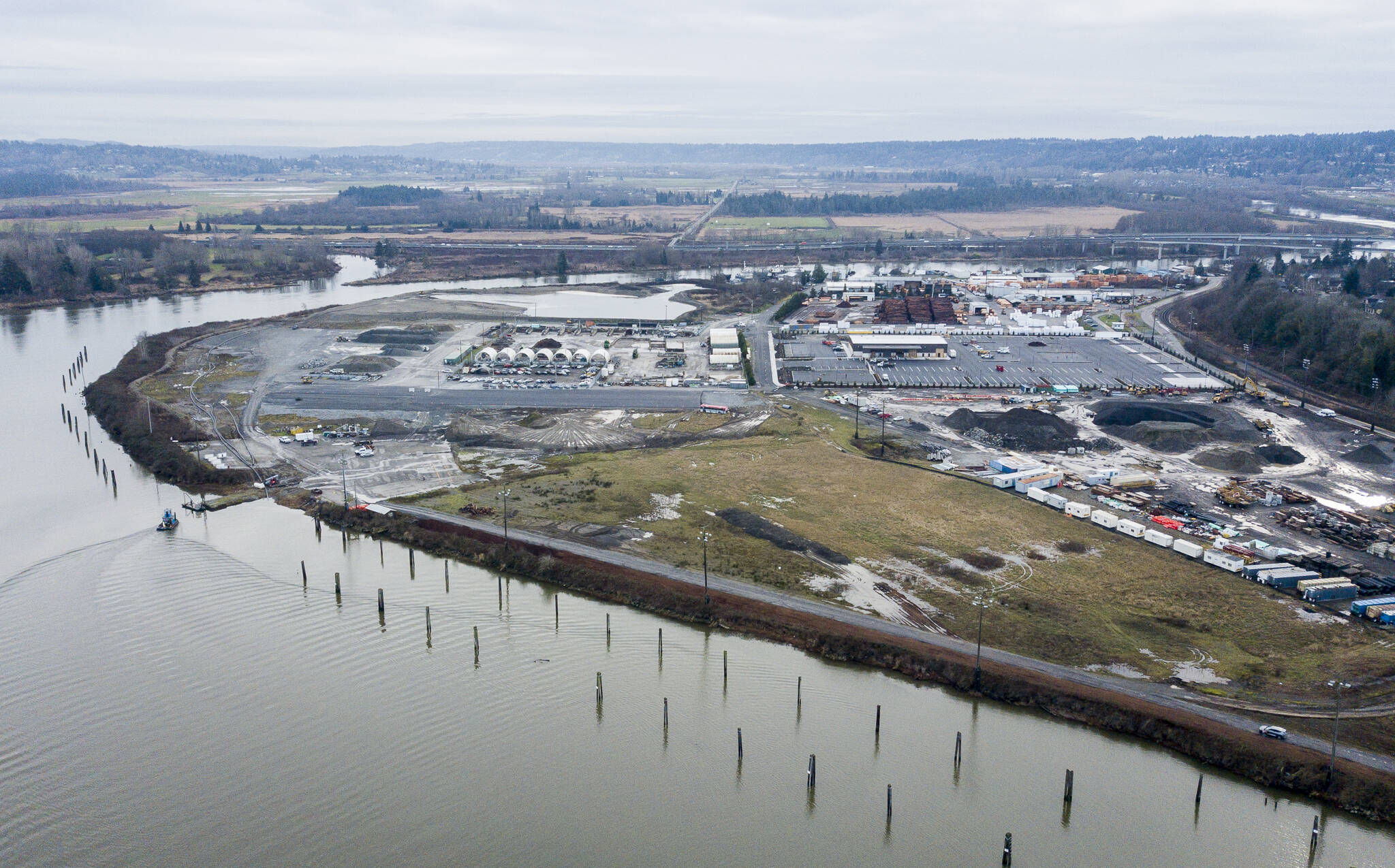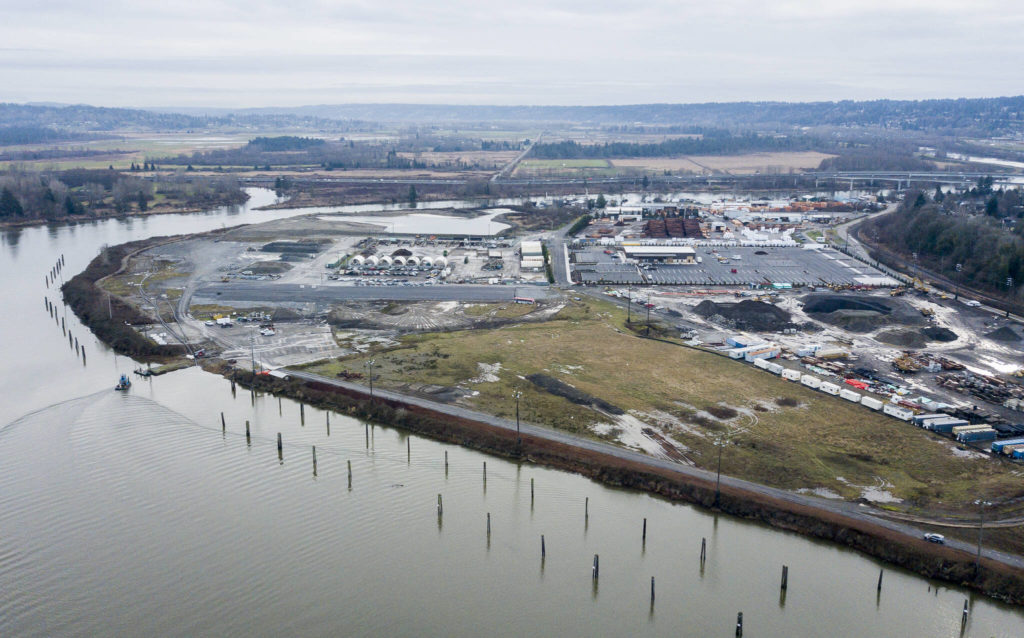EVERETT — The city’s public works could have a new $156 million home some day.
Since 2018, Everett has evaluated the future location for the department that has 320 employees, maintains hundreds of vehicles and tends to city roads, sidewalks, and water lines and reservoirs.
The department’s current Cedar Street campus near Pacific Avenue has an “obsolete” public works service center, aging buildings, and requires a lot of daily trips to a site about 1½ miles away, Everett Public Works Director Ryan Sass said in a presentation Dec. 8.
Last week the Everett City Council approved a site selection study and pre-design work for two locations: a preferred site and a backup.
Everett Point Industrial Center (called EPIC by the city) is the leading candidate. Expanding the current public works footprint around Everett Station (called Cedar-Smith in the study) is plan B.
“This is actually almost a three-year process that we’ve been working on to get to this point,” Councilmember Scott Murphy said. “I like the direction that we’re headed.”
The study evaluated several sites and narrowed its choices to three: EPIC, Cedar-Smith and a major overhaul of the current campus called Cedar Service Center 2.0.
It could take a decade to fund, design and build the facilities at either site. Annual rate increases of 1.45% would help pay for some of the work between 2021 and 2028, and grants could cover the rest.
Everett already owns the EPIC property, about 100 acres east of East Grand Avenue and I-5, and north of Everett Avenue, along the Snohomish River. Julie Bassuk, a partner at MAKERS Architecture behind the study, said that’s a “huge advantage” that many other cities and counties don’t have.
Public works uses part of that space for “the boneyard,” a collection of materials and supplies such as gravel, sand, soil and salt, as well as light and traffic signal poles. Most of the property is undeveloped.
An early estimate to build new facilities on between 18 and 23 acres at EPIC puts the cost at $156 million.
The EPIC property is in a liquefaction zone, which added a $7 million estimate to make the new buildings ready for earthquakes. That worried Councilmember Paul Roberts, a former planning and public works director.
“Obviously if we have an earthquake, this facility will be called upon to do double duty,” Roberts said. “The last thing we can afford is to have it fail at that point.”
Some “key” public works buildings are vulnerable to earthquakes now, according to the report.
Another $8 million to $10 million are estimated for renovations to the Everett Municipal Building, formerly the Wall Street Building, downtown for about 100 department administrative staff.
About 160 employees would be based out of the EPIC site.
The report estimates $13 million for construction of a satellite space for the motor vehicle division to work on the city’s fleet.
Building a bridge from Everett Avenue east over the train tracks could cost $17 million. The bridge is considered necessary to avoid delays when trains rumble through, which the current access via Hewitt and Railway avenues experiences.
In written public comment last week, Everett’s Riverside neighborhood resident Katrina Lindahl worried about traffic through the area and losing a park. She asked the city to plan for more traffic on East Grand Avenue, the link to and from I-5, as well as additional light pollution, noise and the loss of Riverside Park.
In lieu of the park, which could be lost to make room for the bridge, she pointed to nearby BNSF property that could be made into a similar public space. She also asked for a public riverside trail.
Relocating the Public Works operations could cost lower travel time costs and yield property sales revenue, according to the study. Selling some of the city’s Cedar Street and Smith Avenue properties could be worth $30 million.
With those revenues and savings included, the report penciled in 30-year costs of $121 million for the EPIC site.
Staying in the Everett Station area has lower 30-year estimates of $105 million to renovate current facilities and $114 million to expand.
If public works stays there, the city would have to acquire property around the transit hub at the same time light rail gets developed. It also could hinder the city’s goals for more housing and retail around Everett Station, said Cecilia Roussel with MAKERS Architecture.
“There’s always been a sense that we may not be the highest and best use here,” said Sass, the public works director.
Sass and the authors of the report urged a decision be made soon because of the rising costs of labor, land and materials.
“The point is inaction will cost us money,” Councilmember Jeff Moore said. “So we need action.”
The report’s timeline has the council choosing a location next year, with design and construction to conclude by 2031. Some of the next reports will be feasibility work and technical studies, Sass said.
Ben Watanabe: bwatanabe@heraldnet.com; 425-339-3037; Twitter @benwatanabe.
Talk to us
> Give us your news tips.
> Send us a letter to the editor.
> More Herald contact information.



























